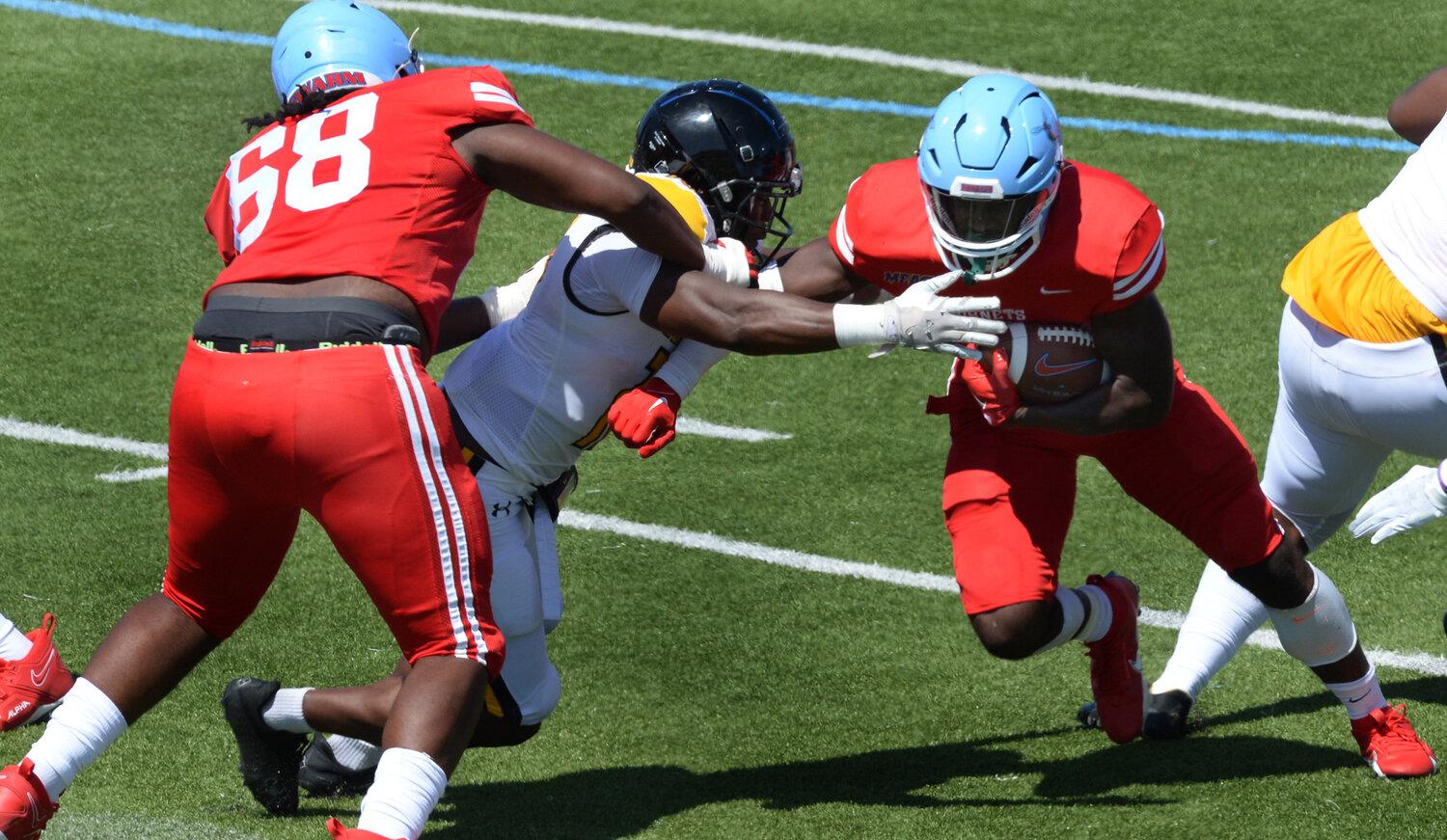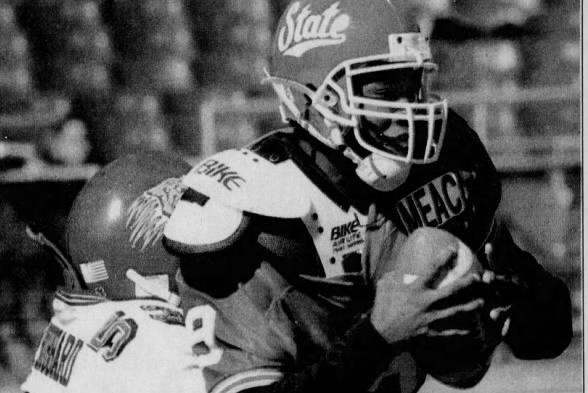•
Written By
Written By
•
•
•
Loading article...
Written By
Written By
Written By
Omar-Rashon Borja
Senior Writer, Editor, Historian
Written By
Omar-Rashon Borja
Senior Writer, Editor, Historian

Delaware State’s Week Zero trip to Hawaii is a once-in-a-lifetime opportunity for the fanbase and players. Even better, it is on a very light Saturday slate of games. Only seven games dot the Week Zero slate. If the Hornets have a solid performance, they can increase their program’s profile immensely. Everything about this game seems like a win for the Hornets, even if they do not come out on top at the game’s conclusion.
However, there is one unmistakable issue. Instead of getting a linear TV appearance on FS1, FS2, CBS Sports Network, or even TruTV, the Delaware State-Hawaii game is part of Hawaii’s broadcast package with Spectrum Sports. The game is free of charge on the mainland but only on mobile devices. While the lack of a paywall is beneficial, the viewing experience for Hawaii’s Spectrum Sports games for fans on the mainland is less than ideal. Instead of being able to stream the game on a smart TV or laptop, fans will either need to screen-mirror their phones or buy an HDMI adapter for their television to enjoy the game on a big screen.
Unfortunately, multiple issues led to the Mountain West's primary media partners passing on Delaware State-Hawaii. First and foremost, Hawaii only plays 12 games this season. Most college football fans notice Hawaii almost always plays 13 games due to the Hawaii Exemption, which allows programs playing in Hawaii to play an extra game to offset travel costs. Oregon's late cancellation of their Week Zero game at Hawaii left the Rainbow Warriors in an awkward position in January. The Rainbows had to schedule a second FCS team to get to 12 games. How does this impact media rights?
Surprisingly, Hawaii is not part of the Mountain West's media deal. The Rainbow Warriors receive around $3.1 million yearly from Spectrum Sports for the rights to broadcast at least seven football games and 60 sporting events. Nonetheless, this deal has stipulations. Should Hawaii not air seven football games on Spectrum Sports, each game not aired below the seven-game threshold results in a $400,000 deduction. If this is confusing, consider the following scenario. If Spectrum Sports were to air only five Hawaii games in 2024, the Warriors would lose $800,000.
This year, Hawaii plays too good and too small of a schedule. CBS picked up the UCLA game for obvious reasons. Hawaii hosts both participants in the 2023 Mountain West Championship Game, Boise State and UNLV, so CBS Sports Network naturally picked up those home games. CBS Sports Network also picked up the Rainbow Warriors' road game against San Diego State, while The CW and ESPN+ own the rights to non-conference games against Washington State and Sam Houston State, respectively. Thus, Spectrum Sports only received six games. In comparison, Spectrum Sports aired nine of Hawaii's 13 games in 2023, with most coming against conference also-rans.
Delaware State-Hawaii makes a lot of sense to receive a linear TV spot. Unfortunately, Hawaii would have lost $400,000 if one of the Mountain West's TV partners expressed interest. It is easy to see why the Mountain West and CBS were willing to work out a deal with Spectrum Sports to air some of Hawaii's games this year. Hawaii plays UCLA, a Power Four school in the country's largest city, and Boise State, the Mountain West's biggest brand. Between these games and the UNLV and San Diego State games, the Mountain West could easily repay Hawaii the $400,000 they lost from Spectrum Sports while also turning a profit.
Should the Mountain West have allowed TruTV or one of the conference's primary TV partners to air the Delaware State-Hawaii game, the conference would have hypothetically had to make $400,000 on that game alone to make the investment beneficial to Hawaii. While Delaware State-Hawaii being a standalone game on Week Zero will give the matchup significant viewership, the viewership may not advance the conference financially and in exposure like the UCLA game would.
In a perfect world, TruTV uses Delaware State-Hawaii as its launchpad to show the college football world they are a legitimate broadcaster, or Fox uses this game as a lead-out to Baseball Night in America. Sadly, multiple compounding factors left this game relegated to the small-scale, mobile device-only broadcast on Spectrum Sports.
Delaware State will have several eyes on them, but one could imagine the viewership they would have received if this game was on a cable partner with the carriage of TruTV or even on over-the-air TV on Fox or CBS. The Hornets will not have a nationally-televised Thursday night game on ESPNU, something they have not had since 2021, so the Week Zero game against Hawaii was their best chance to showcase their program to the nation. This loss in exposure is the greatest tragedy of Week Zero.

